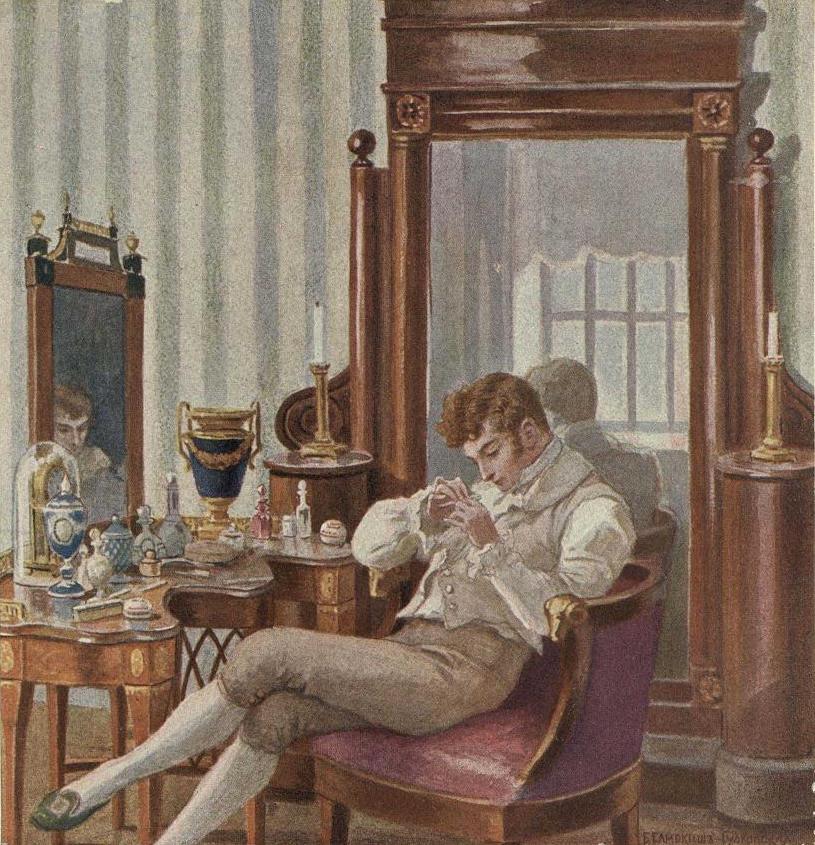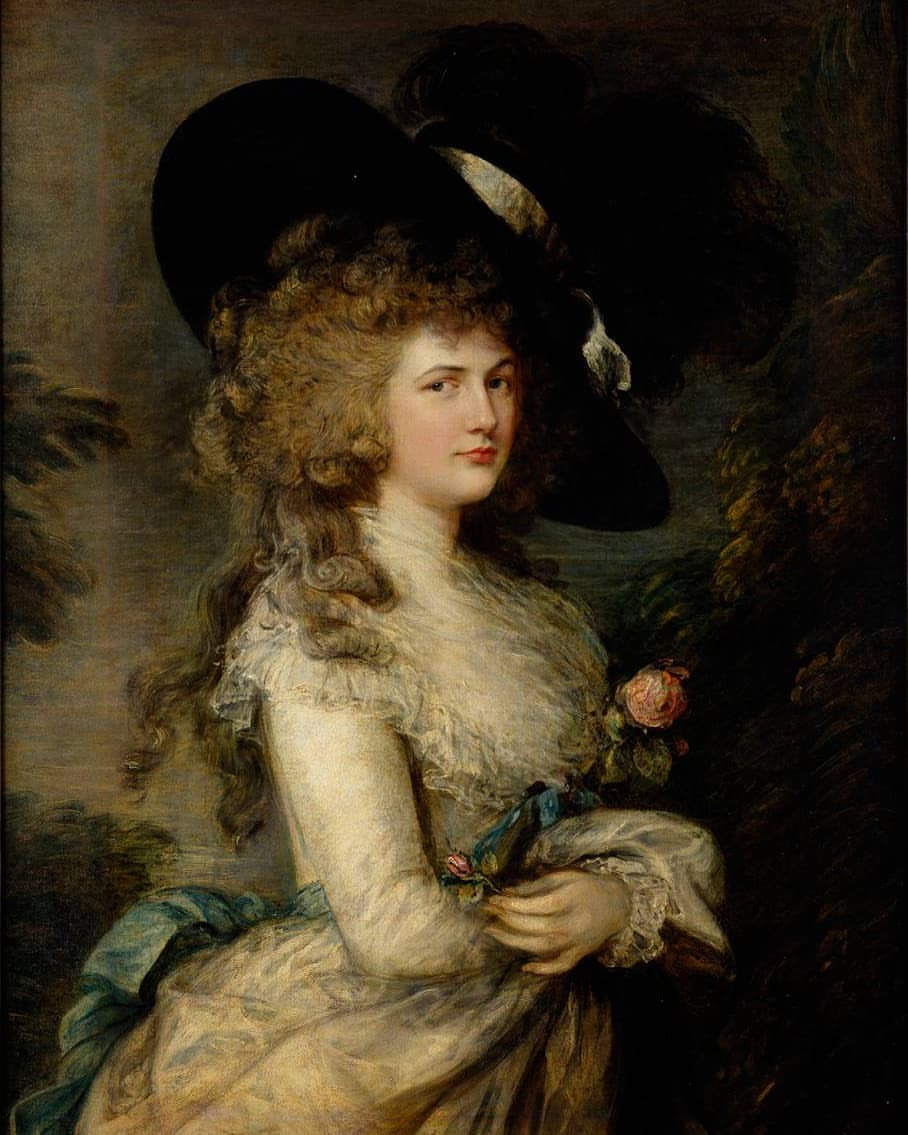 |
Superfluous Man
__NOTOC__ The superfluous man (russian: лишний человек, ''líshniy chelovék'', "extra person") is an 1840s and 1850s Russian literary concept derived from the Byronic hero. It refers to an individual, perhaps talented and capable, who does not fit into social norms. In most cases, this person is born into wealth and privilege. Typical characteristics are disregard for social values, cynicism, and existential boredom; typical behaviors are gambling, drinking, romantic intrigues and duels. He is often unmindful, indifferent or unempathetic with society's issues and can carelessly distress others with his actions, despite his position of power. He will often use his power for his own comfort and security and will have very little interest in being charitable or using it for the greater good. The superfluous man will often attempt to manipulate, control or enslave other individuals. Because he has no integrity or ambitions, he is often self-serving and sees little poin ... [...More Info...] [...Related Items...] OR: [Wikipedia] [Google] [Baidu] |
|
Eugene Onegin Illustration
Eugene may refer to: People and fictional characters * Eugene (given name) Eugene is a common male given name that comes from the Greek εὐγενής (''eugenēs''), "noble", literally "well-born", from εὖ (''eu''), "well" and γένος (''genos''), "race, stock, kin". [...More Info...] [...Related Items...] OR: [Wikipedia] [Google] [Baidu] |
|
.jpg) |
Rudin
''Rudin'' (russian: «Рудин», ) is the first novel by Ivan Turgenev, a famous Russian writer best known for his short stories and the novel '' Fathers and Sons''. Turgenev started to work on it in 1855, and it was first published in the literary magazine "Sovremennik" in 1856; several changes were made by Turgenev in subsequent editions. ''Rudin'' was the first of Turgenev's novels, but already in this work the topic of the superfluous man and his inability to act (which became a major theme of Turgenev's literary work) was explored. Similarly to other Turgenev's novels, the main conflict in ''Rudin'' was centred on a love story of the main character and a young, but intellectual and self-conscious woman who is contrasted with the main hero (this type of female character became known in literary criticism as «тургеневская девушка», “Turgenev girl”). __TOC__ Context ''Rudin'' was written by Turgenev in the immediate aftermath of the Crimean War, wh ... [...More Info...] [...Related Items...] OR: [Wikipedia] [Google] [Baidu] |
 |
Russian Literature
Russian literature refers to the literature of Russia and its émigrés and to Russian-language literature. The roots of Russian literature can be traced to the Middle Ages, when epics and chronicles in Old East Slavic were composed. By the Age of Enlightenment, literature had grown in importance, and from the early 1830s, Russian literature underwent an astounding golden age in poetry, prose and drama. Romanticism permitted a flowering of poetic talent: Vasily Zhukovsky and later his protégé Alexander Pushkin came to the fore. Prose was flourishing as well. Mikhail Lermontov was one of the most important poets and novelists. The first great Russian novelist was Nikolai Gogol. Then came Ivan Turgenev, who mastered both short stories and novels. Fyodor Dostoevsky and Leo Tolstoy soon became internationally renowned. Other important figures of Russian realism were Ivan Goncharov, Mikhail Saltykov-Shchedrin and Nikolai Leskov. In the second half of the century Anton Chekhov excel ... [...More Info...] [...Related Items...] OR: [Wikipedia] [Google] [Baidu] |
 |
Literary Concepts
Literature is any collection of written work, but it is also used more narrowly for writings specifically considered to be an art form, especially prose fiction, drama, and poetry. In recent centuries, the definition has expanded to include oral literature, much of which has been transcribed. Literature is a method of recording, preserving, and transmitting knowledge and entertainment, and can also have a social, psychological, spiritual, or political role. Literature, as an art form, can also include works in various non-fiction genres, such as biography, diaries, memoir, letters, and the essay. Within its broad definition, literature includes non-fictional books, articles or other printed information on a particular subject.''OED'' Etymologically, the term derives from Latin ''literatura/litteratura'' "learning, a writing, grammar," originally "writing formed with letters," from ''litera/littera'' "letter". In spite of this, the term has also been applied to spo ... [...More Info...] [...Related Items...] OR: [Wikipedia] [Google] [Baidu] |
 |
Socialite
A socialite is a person from a wealthy and (possibly) aristocratic background, who is prominent in high society. A socialite generally spends a significant amount of time attending various fashionable social gatherings, instead of having traditional employment. Word history The word ''socialite'' is first attested in 1909 in a California newspaper. It was popularized by ''Time'' magazine in the 1920s.David E. Sumner, ''The Magazine Century: American Magazines Since 1900'', 2010, , p. 62 United Kingdom Historically, socialites in the United Kingdom were almost exclusively from the families of the aristocracy and landed gentry. Many socialites also had strong familial or personal relationships to the British royal family. Between the 17th and early 19th centuries, society events in London and at country houses were the focus of socialite activity. Notable examples of British socialites include Beau Brummell, Lord Alvanley, the Marchioness of Londonderry, Daisy, Princess o ... [...More Info...] [...Related Items...] OR: [Wikipedia] [Google] [Baidu] |
|
Male Expendability
Male expendability, male disposability, the relative expendability argument, or the expendable male hypothesis is the idea that male lives are of less concern to a population than female lives. From a reproductivity standpoint, in most vertebrate species, one male can impregnate many females, but females are more limited in how many offspring they can produce. Male expendability is based on the belief that a human population with many reproducing females and few males could grow more easily than a population with many males and few reproducing females. According to Carol Mukhopadhyay and Patricia Higgins, the concept of male expendability was first written down by fellow anthropologist Ernestine Friedl in 1975, calling it the "relative expendability argument." Anthropologists have used the idea of male expendability to study such subjects as polygyny, matrilineality, and division of labor. Men's rights advocates have used male expendability to explain why, in their view, society ... [...More Info...] [...Related Items...] OR: [Wikipedia] [Google] [Baidu] |
|
|
Paradigm
In science and philosophy, a paradigm () is a distinct set of concepts or thought patterns, including theories, research methods, postulates, and standards for what constitute legitimate contributions to a field. Etymology ''Paradigm'' comes from Greek παράδειγμα (''paradeigma''), "pattern, example, sample" from the verb παραδείκνυμι (''paradeiknumi''), "exhibit, represent, expose" and that from παρά (''para''), "beside, beyond" and δείκνυμι (''deiknumi''), "to show, to point out". In classical (Greek-based) rhetoric, a paradeigma aims to provide an audience with an illustration of a similar occurrence. This illustration is not meant to take the audience to a conclusion, however it is used to help guide them get there. One way of how a ''paradeigma'' is meant to guide an audience would be exemplified by the role of a personal accountant. It is not the job of a personal accountant to tell a client exactly what (and what not) to spend money ... [...More Info...] [...Related Items...] OR: [Wikipedia] [Google] [Baidu] |
|
|
Serfdom In Russia
The term '' serf'', in the sense of an unfree peasant of tsarist Russia, is the usual English-language translation of () which meant an unfree person who, unlike a slave, historically could be sold only with the land to which they were "attached". Peter I ended slavery in Russia in 1723. Contemporary legal documents, such as '' Russkaya Pravda'' (12th century onwards), distinguished several degrees of feudal dependency of peasants. Serfdom became the dominant form of relation between Russian peasants and nobility in the 17th century. Serfdom most commonly existed in the central and southern areas of the Tsardom of Russia and, from 1721, of the subsequent Russian Empire. Serfdom in Little Russia (parts of today central Ukraine), and other Cossack lands, in the Urals and in Siberia generally occurred rarely until, during the reign of Catherine the Great (r. 1762–1796), it spread to Ukraine; noblemen began to send their serfs into Cossack lands in an attempt to harvest ... [...More Info...] [...Related Items...] OR: [Wikipedia] [Google] [Baidu] |
|
 |
Nikolay Dobrolyubov
Nikolay Alexandrovich Dobrolyubov ( rus, Никола́й Алекса́ндрович Добролю́бов, p=nʲɪkɐˈlaj ɐlʲɪˈksandrəvʲɪtɕ dəbrɐˈlʲubəf, a=Nikolay Alyeksandrovich Dobrolyubov.ru.vorb.oga; 5 February O. S. 24 January">Old_Style_and_New_Style_dates.html" ;"title="nowiki/>Old Style and New Style dates">O. S. 24 January1836 – 29 November [O. S. 17 November] 1861) was a Russian poet, literary critic, journalist, and prominent figure of the Russian revolutionary movement. He was a literary hero to both Karl Marx and Lenin. Life Dobrolyubov was born in Nizhny Novgorod where his father was a poor priest. He was educated at a clerical primary school, then at a seminary from 1848 to 1853. He was considered a prodigy by his teachers in the seminary, and at home he spent most of his time in his father's library, reading books on science and art. By the age of thirteen, he was writing poetry and translating verses from Roman poets such as Horace. In 1853 ... [...More Info...] [...Related Items...] OR: [Wikipedia] [Google] [Baidu] |
 |
Nicholas I Of Russia
, house = Romanov-Holstein-Gottorp , father = Paul I of Russia , mother = Maria Feodorovna (Sophie Dorothea of Württemberg) , birth_date = , birth_place = Gatchina Palace, Gatchina, Russian Empire , death_date = , death_place = Winter Palace, Saint Petersburg, Russian Empire , burial_place = Peter and Paul Cathedral, St. Petersburg, Russian Empire , religion = Russian Orthodox , signature = Signatur Nikolaus I. (Russland).PNG Nicholas I , group=pron ( – ) was Emperor of Russia, King of Congress Poland and Grand Duke of Finland. He was the third son of Paul I and younger brother of his predecessor, Alexander I. Nicholas inherited his brother's throne despite the failed Decembrist revolt against him. He is mainly remembered in history as a reactionary whose controversial reign was marked by geographical expansion, economic growth, and massive industrialisation on the one hand, and centralisation of administrative policie ... [...More Info...] [...Related Items...] OR: [Wikipedia] [Google] [Baidu] |